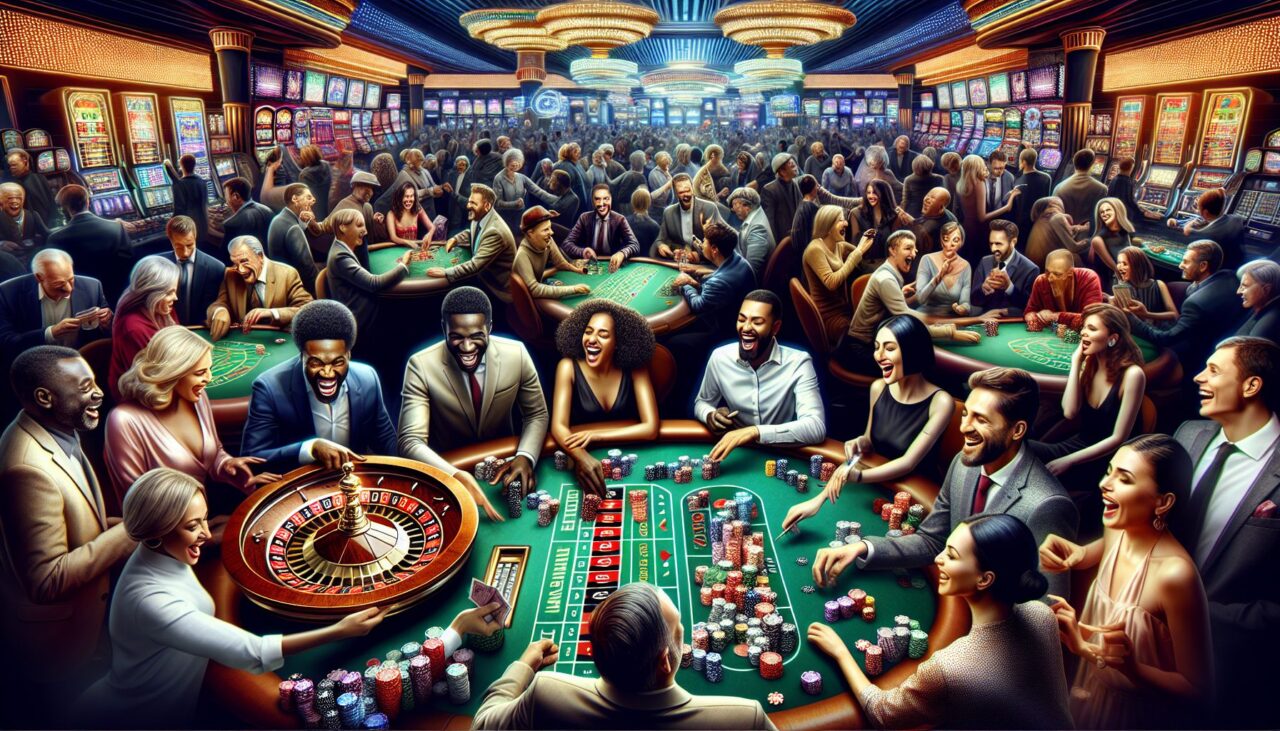We’ve all heard the popular saying, “the house always wins.” It’s a common phrase used to describe the world of gambling. But what exactly is gambling? And why are so many people drawn to it? Is it the thrill of winning? Or the risks involved? In this blog post, we’ll take a deep dive into the world of gambling to explore the highs and lows of this popular activity.
What is Gambling?
Gambling can be defined as the act of placing a wager or bet on an uncertain outcome, with the intention of winning money or other valuable prizes. It has been a part of human culture for centuries, with evidence of gambling activities dating back to ancient civilizations.
Today, gambling takes many different forms, from lotteries and sports betting to casino games and online gambling. With the rise of technology, gambling has become more accessible than ever before. It’s estimated that the global gambling market was worth a staggering $465 billion in 2020, and it’s projected to grow even further in the coming years.
The Thrills of Gambling
So, what makes gambling such a popular activity? For many people, it’s the thrill of the unknown. The excitement of placing a bet and waiting for the outcome can be incredibly exhilarating. The possibility of winning big and beating the odds is a rush that many find hard to resist.
Moreover, gambling offers a unique kind of entertainment. It allows people to escape from their everyday lives and immerse themselves in a world of risk and reward. In many ways, gambling is a form of entertainment that provides an adrenaline rush similar to extreme sports or adventure activities.
For some, gambling can also be a social activity. Whether it’s playing poker with friends or betting on sports events with a group, gambling can bring people together and create a sense of camaraderie and excitement.
The Risks of Gambling
While the thrill of gambling can be enticing, it’s essential to acknowledge the potential risks involved. The biggest danger of gambling is the possibility of losing money. In fact, most gamblers end up losing more money than they win.
But it’s not just the financial aspect of gambling that can be risky. It can also lead to addiction and have a significant impact on a person’s mental health. The constant highs and lows of gambling can be addictive, leading some people to chase losses and develop a gambling problem.
Moreover, gambling can also have a negative impact on personal relationships, as it can become a source of conflict and strain. For those with a predisposition for addiction, gambling can be a dangerous activity that can lead to financial ruin and destroy families.
The Dark Side of Gambling
While gambling can be an enjoyable activity for many, it also has a dark side. The gambling industry is often associated with organized crime and money laundering. In some cases, illegal gambling activities may be used to fund other criminal activities.
Moreover, the rise of online gambling has made it easier for vulnerable individuals to access gambling websites and lose substantial amounts of money. This has led to concerns about the potential for exploitation and fraud within the online gambling industry.
Additionally, gambling addiction has been linked to numerous social issues, such as debt, depression, and even suicide. The seductive allure of gambling can lead individuals down a dangerous path, highlighting the need for responsible and regulated gambling practices.
Responsible Gambling
With the potential risks involved in gambling, it’s crucial to practice responsible gambling. This means setting limits on both time and money spent on gambling activities. It’s also important to never chase losses and to seek help if gambling starts to become a problem.
In recognition of the potential dangers of gambling, many countries have implemented measures to regulate the industry and promote responsible gambling practices. This includes age restrictions for gambling, self-exclusion programs, and mandatory warning messages on gambling advertisements.
Moreover, many casinos and gambling establishments have implemented responsible gambling programs to ensure that their customers are gambling responsibly. These programs provide resources and support for individuals who may be struggling with gambling addiction.
The Future of Gambling
As technology continues to advance, the future of gambling looks to be a more digital and technologically driven one. With the rise of virtual and augmented reality, we can expect to see more immersive and interactive gambling experiences in the coming years.
Furthermore, the use of cryptocurrencies in gambling is also gaining popularity, providing a more secure and anonymous way to place bets and receive winnings. However, this also presents new challenges in terms of regulating online gambling activities.
It’s also worth noting that gambling is not a one-size-fits-all activity. Some individuals may find it a fun and entertaining pastime, while others may struggle with addiction and negative consequences. Ultimately, responsible gambling practices and regulations will continue to play a vital role in shaping the future of this industry.
Conclusion
In conclusion, gambling is a complex and multifaceted activity that offers both thrills and risks. It can be an enjoyable pastime for some, but it’s essential to acknowledge the potential dangers and practice responsible gambling. As with any form of entertainment, moderation and self-awareness are key to maintaining a healthy relationship with gambling. So, the next time you’re feeling lucky, remember to enjoy the experience but always gamble responsibly.
